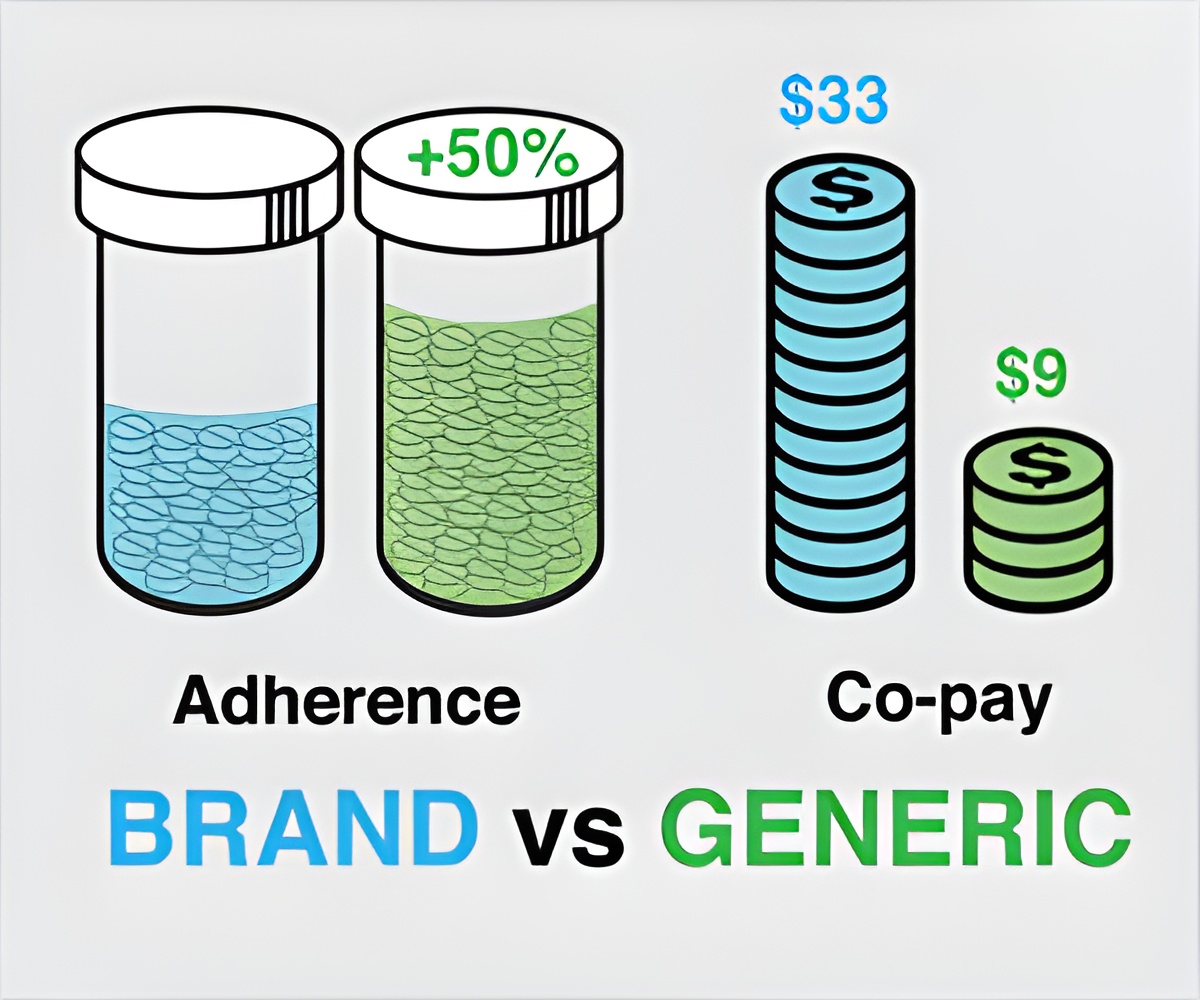Aromatase inhibitors the most common type of hormone therapy were found to be less expensive than their brand name counterparts and increased breast cancer treatment adherence by 50 percent.

“We know that hormone therapy for women with hormone receptor–positive breast cancer can reduce recurrence by up to 50 percent,” added Dr. Hershman. “However, work by our group and others has shown that a substantial number of women discontinue treatment before the recommended five years or do not take the prescribed dose. This is increasingly important because we are starting to learn that even longer therapy—up to 10 years—may be beneficial. It’s critical that we understand why people do not take their medication and what we can do to improve adherence.”
In a previous study, Dr. Hershman and her colleagues found that higher co-payments for
aromatase inhibitors (AIs) significantly decreased adherence to therapy. “When AIs were released in generic form in 2010, we had a unique opportunity to study whether a reduction in overall medication cost would make a difference in adherence,” she said. To find out, the researchers examined the pharmacy records of 5,511 women ages 50 or older with early stage breast cancer (requiring lumpectomy or mastectomy) who were prescribed hormonal therapy between 2007-2012. Each patient was followed for a period of 24 months.
The researchers found that women taking generic AIs were more 50 percent more likely to take the medications on schedule and 30% less likely to discontinue therapy early compared to women taking brand name AIs. Among women on brand name generics, 33 percent discontinued therapy, compared to just 16 percent on generics.
As monthly out-of-pocket co-payments increased, adherence rates decreased. Even a small increase in monthly co-payments, from less than $15 to $15 to $30, resulted in a significant decrease in adherence,” said Dr. Hershman. “That might not seem like a lot money, but it can be a big expense if you multiply it over five or ten years and you have other prescriptions to pay for.”
Advertisement
Another reason for nonadherence, at least with AIs, is that patients don’t see day-to-day signs that the medications are working. “In contrast, if you have hypertension and you’re getting regular blood pressure checks, you can see what happens when you stop taking your medication,” she said.
Advertisement
Physicians also need to remind patients that AIs are effective. “Every time a patient comes for a visit is an opportunity to reinforce the importance of adhering to treatment,” Dr. Hershman said.
Finally, states could pass bills requiring health insurance companies to keep co-payments for oral cancer therapies at affordable levels, a move that several legislatures are considering. “From a public policy standpoint, we want to do everything possible to ensure that patients get life-saving medications. We will save many more lives by treating early stage breast cancer with hormonal therapy than by treating metastatic disease with chemotherapy.”
Because of the growing availability of costly oral biologic therapies for cancer, the problem of medication nonadherence is likely to grow even larger. The average monthly cost of brand-name and generic AIs are $380 and $150 respectively, while the average monthly cost of oral biologics ranges from $5,000 to $8,000.
Medication nonadherence is a major issue throughout the health care system, according to the researchers. One recent study estimated that the annual cost of nonadherence to all types medications is $289 billion, or 13 percent of total U.S. health expenditures.
Source-Newswise















